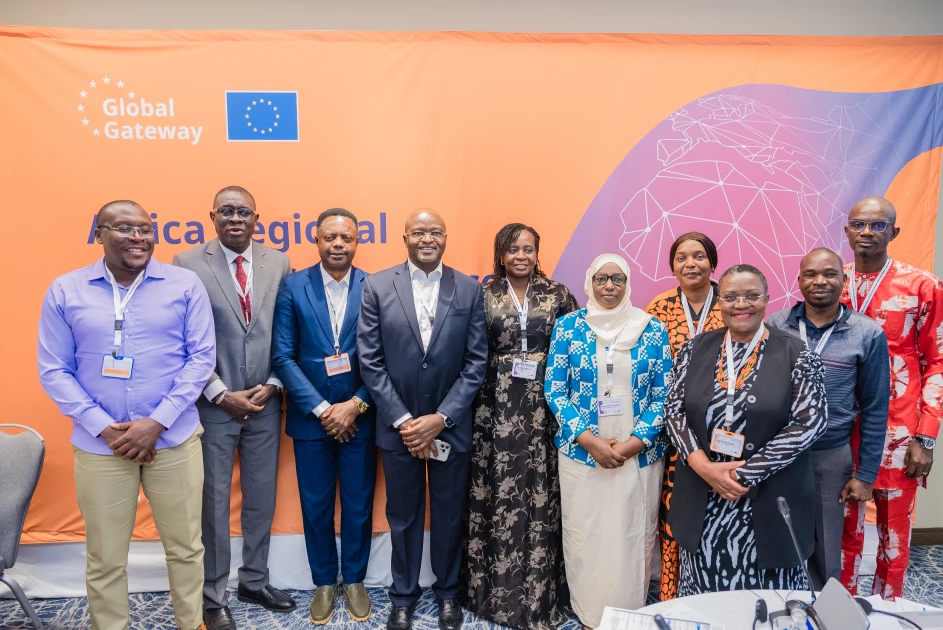Science and technology crucial for Africa’s green transition; Experts say

Delegates at the the annual Africa Regional Centres of Excellence (ArcX) forum. Photo/Handout

Audio By Vocalize
The event, which runs from September 15 to 18 , focuses on how science, technology, and innovation can drive Africa’s green transition and sustainable development. The forum was organized under the EU–Africa partnership and aims to explore ways to strengthen the management of Africa’s forests, biodiversity, and ecosystems through evidence-based policymaking, research collaboration, and knowledge sharing.
With climate change, biodiversity loss, and environmental degradation becoming increasingly urgent issues, the forum provides a platform to discuss how to harness science, technology, and innovation to address these challenges.
Speaking at the forum, Mr. Ondrej Simek, the Deputy Head of the European Union Delegation in Kenya, emphasized the potential of science and technology to create lasting impact:
"Through science, technology, and innovation, we can build stronger connections, foster deeper collaboration, and create lasting impact. These tools are essential for tackling Africa’s most pressing challenges."
The urgency of these discussions is amplified by the growing threats to Africa’s natural resources. Dr. Robert Nasi, Director of Science at CIFOR-ICRAF, warned that Africa is losing its forests at an alarming rate, with severe economic consequences.
"The disappearance of forests has far-reaching implications for agriculture, which employs a significant portion of Africa’s population," he said.
This loss also leads to rising unemployment, desertification, declining biodiversity, and damage to the tourism sector—an industry that is vital for many African economies.
In Kenya, the natural environment provides crucial resources such as food, clean water, energy, and jobs, all of which are vital for combating climate change.
However, these resources are under increasing pressure due to land degradation, pollution, rapid urbanization, and unsustainable agricultural practices. Dr. Mahaman Bachir Saley, Science & Technology Specialist at the African Union Commission, echoed this concern:
"Africa is rich in potential and natural resources, but potential alone is not enough. We must harness science, technology, and innovation to address climate change, biodiversity loss, food security, energy access, and other critical challenges."
The interconnectedness of Africa’s ecosystems was another key theme at the forum.
Experts highlighted the crucial role of forests in regulating water cycles, supporting wetlands, and sustaining wildlife. Dr. Peter Minang, Africa Director for CIFOR-ICRAF, reinforced the importance of preserving ecosystems:
"If our forests disappear, our water resources are lost, and food security, development, and economic growth will be undermined."
Given the deep interdependence of ecosystems, experts emphasized the importance of addressing the challenges of climate change and biodiversity loss in a coordinated and integrated way.
Agroecology, a practice that applies ecological principles to farming, was identified as a key strategy for promoting sustainable agricultural systems that benefit both the environment and local communities.
Practices such as intercropping, agroforestry, and the use of native species are critical for restoring biodiversity while improving food production and resilience to climate shocks. Given that agriculture is the dominant land use in Africa, agroecology has the potential to transform farming into a driver of both ecosystem health and rural prosperity.
Data-driven policymaking was also a central topic at the forum. Dr. Nasi stressed that accurate, reliable data is essential for designing effective policies and tracking progress on international agreements like the Kunming-Montreal Global Biodiversity Framework and the African Union’s Agenda 2063:
"We are getting better at monitoring the crisis, but we are still too slow in taking action. The economic cost of inaction is staggering."
Dr. Saley also highlighted the need to bridge the gap between scientific research and political action:
"Too much research stays in universities and does not reach policymakers. It is time to ensure that scientific evidence informs decisions that will shape Africa’s future."
As the AU–EU Summit approaches in Angola later this year, there is an increasing sense of urgency to implement solutions that will foster sustainable development across both regions.
With the right policies and international partnerships, Africa can unlock opportunities in green jobs, nature-based solutions, and sustainable land-use practices that deliver long-term benefits for both people and the planet.
The ArcX programme, funded by the European Union, supports regional collaboration across Africa in five key areas: Agroecology, Biodiversity & Forests, Water, Ocean, and Climate. These initiatives are designed to help strengthen Africa’s capacity for sustainable resource management, providing a blueprint for the continent’s green transition.
By harnessing science, technology, and innovation, Africa has the potential to lead the world in sustainable development, creating a future where natural resources continue to support the continent’s growing populations while combating climate change and ensuring economic prosperity for generations to come.


Leave a Comment